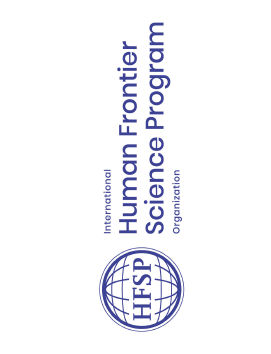The HFSP postdoctoral fellowship program provides a unique opportunity for the most talented young researchers to embark on a new journey that will shape their career trajectory and allows them to pursue their dream of being recognized for research excellence. Long-Term Fellowships are for applicants with a PhD in a biological discipline.
HFSP postdoctoral fellowships aim to expose awardees to new theories and methods which complement or build on their previous experience and expertise. Research projects may range from biological functions at the molecular and cellular level up to the level of biological systems, including cognitive functions. All levels of analysis are supported: for example, studies on genes and individual molecules, intracellular networks, intercellular associations in tissues and organs, and networks underlying the complex functions of entire organisms, populations, or ecosystems.
The proposed research
HFSP funds only basic research. The International Human Frontier Science Program Organization (HFSPO)’s mission is to “fund basic research focused on the elucidation of the sophisticated and complex mechanisms of
living organisms for the benefit of all humankind, through international cooperation”. The quality of the proposed research is judged against specific criteria and applicants should study these assessment criteria that can be found here, as they develop their applications.
Successful Long-Term Fellowship proposals
- incorporate novel investigative approaches at the frontiers of the life sciences with the potential to disrupt existing paradigms and current ways of thinking. The results of the research are expected to have an impact beyond the immediate field.
- demonstrate the change of field of the applicant and demonstrate the ability to formulate a research project with the frontier-extending, risky nature and describe how the applicant’s unique training and special skill set will allow them to address biological problems in a novel and distinct way.
The applicant may consult with the host supervisor in the development and writing of the proposal, but the project should be primarily the idea of the applicant.
- provide a prospect for novel directions in the host laboratory.
- clearly show how the proposed project is different from the applicant’s research to date (PhD or previous postdoctoral positions) and how it will help the applicant to learn new research approaches and methodologies.
HFSP does not fund
1. Projects of a purely applied nature. For example:
- projects of a primarily clinical and pharmaceutical nature; those projects are only considered if they allow new insights into fundamental biological mechanisms of a disease.
- projects aimed at developing methods of diagnosis or treatment, including the search for potential drug targets or advanced trials of drugs under development.
- applied research in engineering, biotechnology, or nanotechnology, that does not address a fundamental biological problem.
- projects directly concerned with agricultural problems such as crop yield or breeding and environmental problems such as pollution, or forestry.
2. Research aimed at developing novel methods or the study of analogs or models of biological activity unless these methods allow new biological questions to be answered in the context of the aim of the HFSP to fund fundamental research.
3. Observational projects or systematic screening approaches.
4. Large-scale data collection studies or large-scale studies on populations or ecosystems. However, studies of the mechanisms of species-species interactions or their co-evolution are eligible.
5. Research in for-profit environments (but collaborations are allowed).
Proposals representing standard or incremental approaches, obvious next steps in the field or for the host laboratory (routine projects) or proposals that do not represent a significant change in research direction from previous work of the applicant (i.e. PhD thesis or previous postdoctoral work) are less likely to receive funding.
